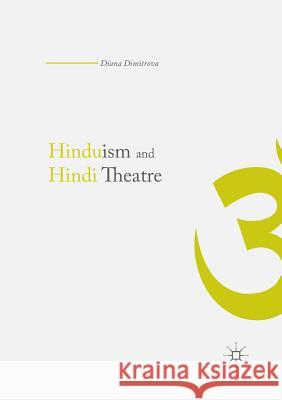Hinduism and Hindi Theater » książka
topmenu
Hinduism and Hindi Theater
ISBN-13: 9781349955978 / Angielski / Miękka / 2018 / 215 str.
Kategorie:
Kategorie BISAC:
Wydawca:
Palgrave MacMillan
Język:
Angielski
ISBN-13:
9781349955978
Rok wydania:
2018
Wydanie:
Softcover Repri
Ilość stron:
215
Waga:
0.27 kg
Wymiary:
21.01 x 14.81 x 1.22
Oprawa:
Miękka
Wolumenów:
01
Dodatkowe informacje:
Wydanie ilustrowane











